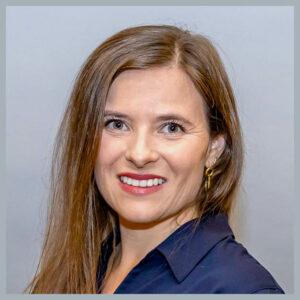
- This event has passed.
2024 Symposium on Children

Join the Crane Center for Early Childhood Research and Policy for our 11th annual
SYMPOSIUM ON CHILDREN
Strengthening the Early Childhood Workforce
DATE:
Thursday, October 3, 2024
TIME:
10:00am-4:00pm
Doors and exhibitor hall open at 9:00am
LOCATION:
In-person event at Marriott Columbus OSU
3100 Olentangy River Rd, Columbus, OH 43202 (map)
ABOUT THE EVENT
For young children to thrive, they need high-quality environments that support learning and strong, nurturing relationships with adults. Early educators are key in this ecosystem; they provide quality interactions and engaging education for young learners. To build and sustain high-caliber early learning environments requires a high-caliber workforce – one that supports and strengthens its workers and addresses the challenges they face. However, the early child care and education sector is struggling to attract and retain workers. Over the past four years just in Ohio, 382 child care providers permanently closed due to staffing and funding issues.
This year’s Symposium will convene educators, policymakers, researchers, and advocates to examine ways to strengthen and support the early care and education workforce. Keynote speaker Dr. Daphna Bassok from the University of Virginia will set the stage for the day, showcasing actionable strategies from research and policy partnerships to support early childhood educators. This year’s symposium will also feature two additional sessions led by Dr. Kathryn Kigera from the DC Office of the State Superintendent of Education and Tonya Coston, strategic advisor to the New Jersey Department of Labor & Workforce Development. These sessions will look more deeply into unique approaches from around the U.S. that are being piloted or implemented to strengthen support for early educators. These sessions will be followed by an extended Q&A panel with all three speakers, before the event concludes with our second annual Crane Excellence in Early Childhood Awards.
We look forward to welcoming you to this year’s Symposium on Children!
*Lunch will be provided. This event is free and open to all who are interested, but registration is required.
*Certificates of attendance and Ohio-Approved OCCCRA credits (*pending approval) will be available. For OCCRRA credits, please provide your OPIN number during registration.
*All times are in Eastern Standard Time (EST).
SCHEDULE & DETAILS
| TIME | SESSION | SPEAKER & FEATURE |
|---|---|---|
| 9:00-10:00am | Doors & Exhibitor Hall Open | |
| 10:00 – 10:25am | Welcome
Opening Remarks |
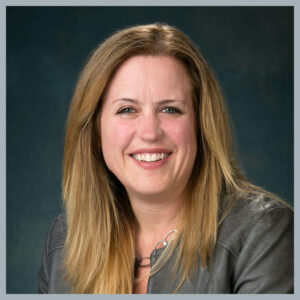 Dr. Laura Justice, executive director of the Schoenbaum Family Center and Crane Center for Early Childhood Research and Policy Dr. Laura Justice, executive director of the Schoenbaum Family Center and Crane Center for Early Childhood Research and Policy
|
| 10:25 – 11:25am | Keynote | Elevating Early Educators: Innovative Policies and Practices to Support Children, Families, and the Early Childhood Workforce
Early educators are the key drivers of quality in early care and education, playing a critical role in supporting young children’s development and enabling families to work. Despite their essential contributions, early educators in the U.S. face historically difficult working conditions, very low pay, and little support—challenges that have been exacerbated by the COVID-19 pandemic. Turnover rates among early childhood teachers are very high and negatively impact working families, children, and the broader economy. Drawing on lessons from a decade of partnerships between researchers and policymakers, this keynote will explore how innovative policies and practices are making a tangible difference in supporting the early childhood workforce. The presentation will highlight how actionable strategies for providing more equitable support to early educators can contribute to building higher quality early childhood systems.
|
| 11:25-11:40am | 15-minute break | |
| 11:40am – 12:40pm | Session 1 | Sustainable Approaches to Strengthening the Early Learning Workforce
Early childhood educators support young children and their families during the most crucial years of development and hold substantial knowledge, skills, and cultural competency. Yet their compensation reflects neither the value of their work nor the expertise they hold. Early childhood educators (who are predominantly women and 40% people of color) rank only within the second percentile of pay for female wage earners nationally. This under-compensation reflects long-standing patterns of inequity grounded in racism, sexism, and colonialism, which harm early educators, children, and families. For decades, advocates have sought to increase early educator pay to address these inequities and ensure an adequate supply of well-prepared and supported early educators. But many of these efforts foundered due to the chronic underfunding of early care and education or were limited to educators in publicly funded pre-K programs. Recently, however, federal COVID funding and state and local innovations have opened new horizons for equitable compensation for early childhood educators. This session will explore innovative approaches that the District of Columbia is implementing to recruit, retain, compensate, and build professional advancement opportunities for the early learning workforce, as well as plans for sustainability moving forward. This session will highlight the Early Childhood Educator Pay Equity Fund, HealthCare4ChildCare, and postsecondary scholarships and supports for early educators. This session is meant to be interactive and a discussion to share best practices, respond to questions, and think about improvements moving forward. Dr. Kathryn Kigera |
| 12:40-1:45pm | Lunch | |
| 1:45 – 2:45pm | Session 2 | Strengthening Early Care and Education through State Government Collaboration
The 2015 report, “A National Snapshot of State-Level Collaboration for Early Care and Education,” emphasizes the importance of collaboration among state early care and education agencies. Several federal and state initiatives recognize this as a critical strategy for creating supportive, accessible, and effective early care and education systems. Within these collaborations, state governments play a vital role, employing various policy levers and forming partnerships to address the challenges faced by early educators and the broader early care landscape. This session will explore successful examples of state-level collaborations. Participants will learn how New Jersey established a cross-agency structure and vision for early care and education, beginning with the Race to the Top Early Learning Challenge Grant that continues to offer opportunities to leverage insights on how to build a comprehensive support system. The session will also explore examples of state-level collaborations, such as the potential of utilizing the Registered Apprenticeship program, a legacy of New Deal-era legislation with a proven track record of success in various sectors that can hold promise for early care and education. This session will highlight the critical importance of inter-agency cooperation and lessons learned to inspire and inform stakeholders on how to build more robust and effective support systems for early educators.
|
| 2:45 – 3:00pm | 15-minute break | |
| 3:00 – 3:45pm | Q&A with Speakers | Featuring Dr. Daphna Bassok, Dr. Kathryn Kigera, and Tonya Coston
Moderated by: Dr. Laura Justice |
| 3:45 – 4:00pm | Crane Excellence in Early Childhood Awards | |
ABOUT OUR ANNUAL SYMPOSIUM
Each year this event highlights a critical or emerging topic in early child care and education and brings together key stakeholders from around the state, including policy leaders and decision makers; practitioners, providers, and administrators; and researchers. By bringing together these key constituencies, we believe that we will be better equipped to assess and understand the current state of the topic and to shape future directions of research, practice, and policy through evidence-based insights and actionable takeaways.
In partnership with:
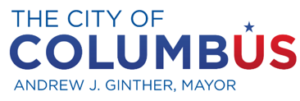

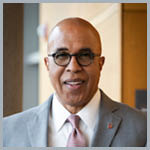 Dean Donald Pope-Davis
Dean Donald Pope-Davis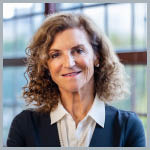 Tanny Crane
Tanny Crane
 Dr. Daphna Bassok
Dr. Daphna Bassok